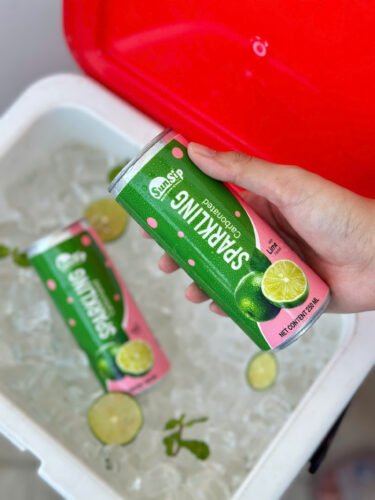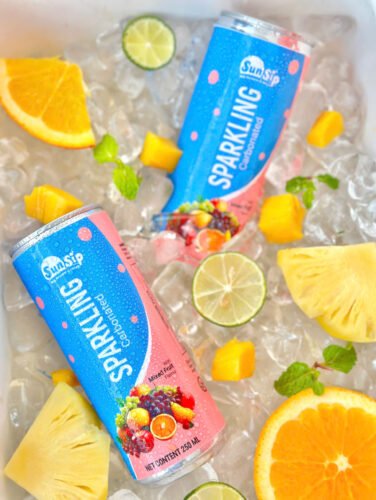Introduction to Sparkling Drinks

Sparkling drinks, also known as carbonated beverages, include a variety of drinks infused with carbon dioxide (CO2) under pressure. This process creates the characteristic fizz and refreshing sensation that people enjoy. These drinks range from carbonated water and soda to flavored sparkling water and some energy drinks. Due to their crisp taste and thirst-quenching ability, sparkling drinks have gained immense popularity worldwide, offering a more exciting drinking experience compared to still water.
Carbonated beverages have been around for centuries, initially consumed for their supposed medicinal properties. Today, they have evolved into a global phenomenon, with numerous brands producing a wide array of sparkling drinks to cater to different tastes and preferences. While some people drink them for enjoyment, others appreciate their potential health benefits. Understanding the role of sparkling drinks in daily life helps consumers make informed choices about their consumption.
The Importance and Benefits of Sparkling Drinks

One of the primary benefits of sparkling drinks is hydration. While plain water is essential for maintaining bodily functions, some individuals find it boring. Sparkling water provides an appealing alternative, encouraging people to drink more and stay hydrated. Hydration is crucial for overall health, supporting bodily functions such as circulation, temperature regulation, and waste elimination. Those who struggle to drink enough water may find that the added carbonation in sparkling beverages makes it easier to meet daily hydration goals.
Additionally, carbonated water has been shown to aid digestion by stimulating digestive enzymes. The bubbles in sparkling water can promote the release of gastric juices, which help break down food more efficiently. Some studies suggest that drinking carbonated water may relieve symptoms of indigestion, bloating, and constipation. For people who experience digestive discomfort, incorporating sparkling water into their diet could be a beneficial solution.
Furthermore, sparkling water, especially when unsweetened, serves as a healthier substitute for sugary sodas and juices. Many conventional sodas contain excessive amounts of sugar, artificial flavors, and preservatives that can contribute to health problems like obesity, diabetes, and dental issues. Choosing unsweetened or naturally flavored sparkling water allows individuals to enjoy the fizzy sensation without the negative health effects associated with sugar-laden drinks.
Certain types of sparkling water contain beneficial minerals such as calcium, magnesium, and potassium, which support bone strength, muscle function, and heart health. These minerals play essential roles in maintaining a healthy body. For instance, calcium is vital for strong bones and teeth, magnesium supports muscle relaxation and nerve function, and potassium helps regulate blood pressure. Drinking mineral-rich sparkling water can contribute to meeting daily nutrient requirements.
Many individuals turn to sparkling water as a tool for weight management. The carbonation in these drinks can promote a feeling of fullness, reducing the likelihood of overeating. Drinking sparkling water before or during meals may help curb appetite, leading to reduced calorie intake. This effect can be especially useful for those trying to maintain a healthy weight or follow a calorie-controlled diet.
Additionally, the refreshing sensation of carbonated drinks can enhance mood and mental alertness, making them a great choice for individuals looking for a quick energy boost. The tingling sensation caused by carbonation can stimulate the senses, providing an invigorating effect that helps people feel more awake and refreshed.
Myths and Misconceptions About Sparkling Drinks

A common misconception is that carbonated beverages weaken bones. However, research suggests that plain sparkling water does not have a negative impact on bone health. The real concern lies with sugary sodas, which contain phosphoric acid that may contribute to calcium loss. Phosphoric acid, found in some soft drinks, has been linked to decreased bone mineral density when consumed excessively. However, plain sparkling water does not contain this ingredient, making it a safe choice for bone health.
Another myth is that sparkling drinks harm dental health. While flavored sparkling drinks with added sugars and acids may contribute to dental erosion, plain carbonated water is generally safe for teeth. The acidity in some carbonated beverages may weaken enamel over time, but the effect is minimal compared to sugary sodas and fruit juices. Rinsing the mouth with water after drinking acidic beverages can help protect enamel and maintain oral health.
Some also believe that carbonation causes weight gain, but sparkling water itself does not contribute to weight gain since it contains no calories. However, carbonated drinks with added sugars and artificial flavors may increase calorie intake, leading to weight gain over time. It is essential to differentiate between plain sparkling water and high-calorie carbonated beverages.
Another concern is that sparkling water causes gas and bloating. While carbonation can introduce air into the digestive system, leading to temporary bloating in some individuals, most people tolerate it well. Those with sensitive digestive systems may prefer to drink sparkling water in moderation to avoid discomfort.
Choosing the Right Sparkling Drink

When selecting a sparkling drink, it is important to check the ingredients and opt for beverages with no added sugars, artificial sweeteners, or preservatives for the healthiest option. Reading labels carefully can help consumers make informed choices. Some sparkling waters are infused with natural fruit essences, providing flavor without added sugars or artificial chemicals.
Natural flavored sparkling water is a better choice than artificially flavored sodas, as it often contains fewer chemicals and no harmful additives. Choosing products made with real fruit extracts or natural flavors ensures a cleaner and more refreshing beverage experience.
While sparkling drinks can be beneficial, moderation is key, as overconsumption of carbonated beverages with artificial ingredients can have negative effects on health. Excessive intake of sodas and energy drinks may lead to dehydration, tooth decay, and other health concerns. Balancing sparkling drink consumption with plenty of still water and a nutritious diet supports overall well-being.
The Future of Sparkling Drinks
As consumer preferences shift toward healthier beverage options, the sparkling drink industry continues to evolve. Many companies are innovating by offering new flavors, natural ingredients, and functional additives such as vitamins, electrolytes, and probiotics. These advancements cater to health-conscious individuals who seek refreshing drinks without compromising their wellness goals.
Sustainability is also becoming a priority in the sparkling drink market. Brands are exploring eco-friendly packaging options, such as recyclable cans and glass bottles, to reduce environmental impact. Additionally, some companies are investing in carbon-neutral production methods to minimize their carbon footprint.
With increasing awareness of health and sustainability, the demand for clean, high-quality sparkling drinks is expected to grow. Consumers now have more choices than ever, allowing them to enjoy their favorite fizzy beverages while making mindful decisions about their health and the planet.
Conclusion
Sparkling drinks offer numerous benefits, from hydration and digestion support to mineral supplementation and weight management. Their refreshing and fizzy nature makes them a popular choice worldwide. By choosing the right type of sparkling drink and consuming it in moderation, individuals can enjoy a refreshing and health-conscious beverage. Understanding the myths and facts surrounding carbonated beverages allows consumers to make informed choices, ensuring that they maximize the benefits while minimizing any potential risks.
As the sparkling drink industry continues to innovate, consumers can look forward to healthier, more sustainable options. Whether enjoyed plain or flavored, sparkling drinks remain a delightful and beneficial addition to a balanced diet. With the right knowledge, individuals can embrace the fizz while prioritizing their overall well-being.
